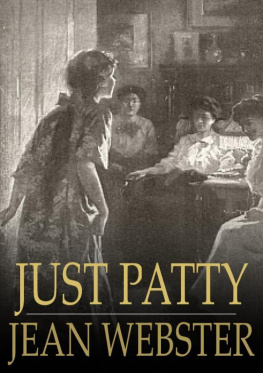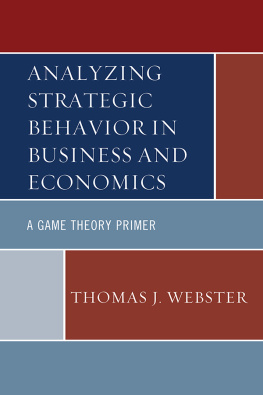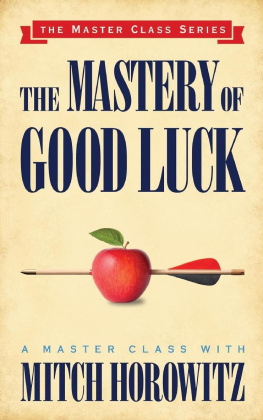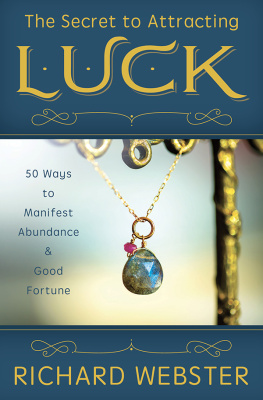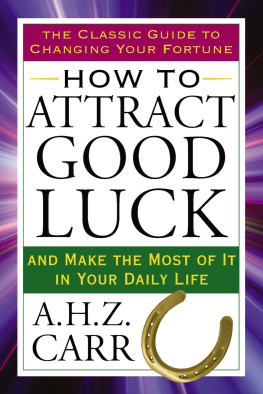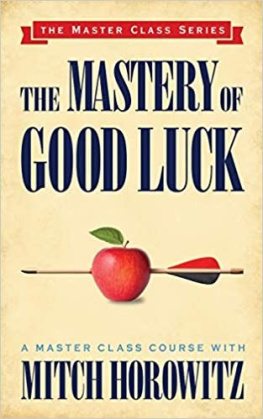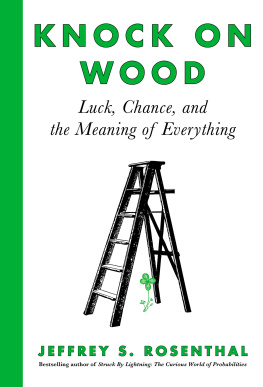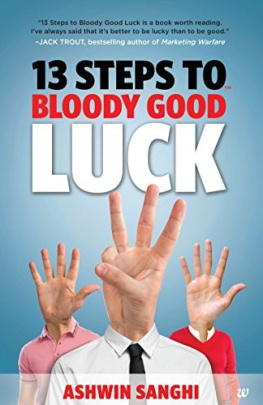Richard Webster was born and raised in New Zealand. He has been interested in the psychic world since he was nine years old. As a teenager, he became involved in hypnotism and later became a professional stage hypnotist. After school, he worked in the publishing business and purchased a bookstore. The concept of reincarnation played a significant role in his decision to become a past-life specialist. Richard has also taught psychic development classes, which are based on many of his books.
Richards first book was published in 1972, fulfilling a childhood dream of becoming an author. Richard is now the author of more than fifty books, and he is still writing today. His best-selling books include Spirit Guides & Angel Guardians and Creative Visualization for Beginners.
Richard has appeared on several radio and TV programs in the United States and abroad including guest spots on Hard Copy , WMAQ-TV (Chicago), KTLA-TV (Los Angeles), KSTW-TV (Seattle) and The Mike and Matty Show (ABC). He currently resides in New Zealand with his wife and three children. He regularly travels the world to give lectures and workshops and to continue his research.
Llewellyn Publications
Woodbury, Minnesota
Copyright Information
365 Ways to Attract Good Luck: Simple Steps to Take Control of Chance and Improve Your Future 2014 by Richard Webster
All rights reserved. No part of this book may be used or reproduced in any matter whatsoever, including Internet usage, without written permission from Llewellyn Publications, except in the form of brief quotations embodied in critical articles and reviews.
As the purchaser of this e-book, you are granted the non-exclusive, non-transferable right to access and read the text of this e-book on screen. The text may not be otherwise reproduced, transmitted, downloaded, or recorded on any other storage device in any form or by any means.
Any unauthorized usage of the text without express written permission of the publisher is a violation of the authors copyright and is illegal and punishable by law.
First e-book edition 2014
E-book ISBN: 9780738741758
Book design by Bob Gaul
Cover art: Shutterstock/135287159/Yutilova Elena
iStockphoto.com/1735753/kerkla
Cover design by Lisa Novak
Editing by Laura Graves
Llewellyn Publications is an imprint of Llewellyn Worldwide Ltd.
Llewellyn Publications does not participate in, endorse, or have any authority or responsibility concerning private business arrangements between our authors and the public.
Any Internet references contained in this work are current at publication time, but the publisher cannot guarantee that a specific reference will continue or be maintained. Please refer to the publishers website for links to current author websites.
Llewellyn Publications
Llewellyn Worldwide Ltd.
2143 Wooddale Drive
Woodbury, MN 55125
www.llewellyn.com
Manufactured in the United States of America
Contents
: What Is Luck, and What Can You Do About It?
Taking Action for Luck
: Your Amazing Biology
: How to Take Control of Your Luck
Lucky Tools
: Lucky Words and Phrases
: Lucky Crystals and Gemstones
: Lucky Charms
Luck by Category
: Love and Marriage
: Luck in the Home
: Seasons, Days, Months, and Years
Luck Throughout Culture and History
: Lucky Animals
: Food and Drink
: Luck in the Far East
: Folklore and Luck
: Conclusion
For my good friend
Brett Sloman
Introduction:
What Is Luck, and
What Can You Do About It?
Luck has been defined as the combination of chance circumstances that bring good or ill into a persons life. If this definition is correct, luck is unpredictable. E. M. Forster (18791970), the English novelist, referred to this when he wrote: There is much good luck in the world, but it is luck. We are none of us safe. We are children, playing or quarrelling on the line.
Over the centuries, many people have tried to explain luck. Some people think the architect of the universe creates the situations in which good or bad luck can occur. Others believe trusting their intuition will bring them good luck. Still others claim theres no such thing as luck, and pure chance is responsible for every instance of good or bad luck. Author Max Gunther wrote: Luck is the supreme insult to human reason: You cant plan for it, you cant cultivate it, and you cant find anybody to teach it to you. All you can do is hope for it.
I would strongly disagree! We do have influence over our luck, which is reassuring when life can often feel like youre at chances whim. Although luck doesnt directly govern our lives, it affects nearly everything we do. Consequently, people have tried throughout history to improve their luck by using rituals, lucky charms, positive thinking, philosophies such as feng shui, and divinationtechniques well be reviewing in this book.
Good Luck
Luck is a mysterious force that seems to operate for good or ill in peoples lives. Sir Winston Churchill (18741965) was known as that lucky devil Churchill because most of the time, events seemed to work out in a way that favored him. In recent years, scientists have started looking at some of these practices to determine if they can help people improve their luck. Lysann Damisch of the University of Cologne became interested in the superstitions of professional athletes such as Michael Jordan, and created a test to see if these practices genuinely gave them more luck. In one experiment, she asked volunteers to bring a lucky charm with them when they took a test. The charms were taken away to be photographed, and half the volunteers received them back before the test began. The people who had their lucky charm with them did better at the test because they felt more confident. Professor Damisch found that even wishing someone good luck improved his or her results as it created confidence.
It seems that superstitious practices can increase luck, as they give people more confidence and the illusion of control in stressful situations. Giora Keinan of the University of Tel Aviv found that people knocked on wood more frequently after being asked stress-inducing questions, such as: Have you ever been involved in a terrible road accident ?
Random chances of fate can create good or bad luck. Winning a lottery is an example of this. Winning a large sum of money when the odds are millions to one against you is certainly an example of luck. This may not necessarily be good luck, either, as statistically two out of every three lottery winners spend or lose their winnings in less than five years.
People often refer to other peoples amazing successes as luck, ignoring the fact that talent, hard work, persistence, and other factors were probably more important in achieving success than pure luck. Often, apparent overnight success is the result of many years of hard work that has ultimately paid off with a seemingly lucky result.
Of course, while there are ways you can influence luck, some things cant be changed. Your ancestors and country of birth are obvious examples. In some countries, parents feel luckier if they produce a boy rather than a girl. This is because the boy will grow up and help support the family, whereas a girl will grow up and ultimately help the family she marries into. For this reason, someone born in a first-world country would probably be considered lucky compared to someone born in a third-world country. Someone born to loving parents would be considered luckier than someone born to parents who hated each other. Wealthy parents might be considered luckier than parents who have to struggle to make a living.



